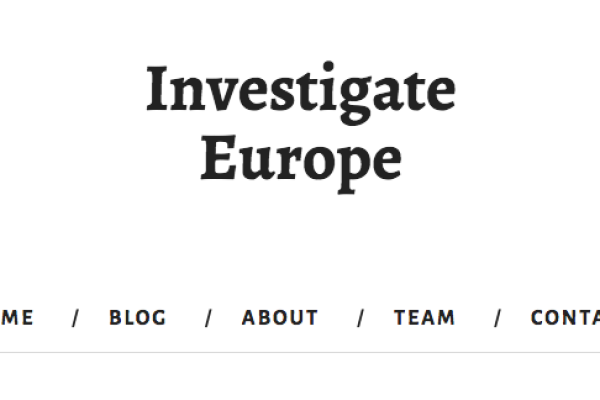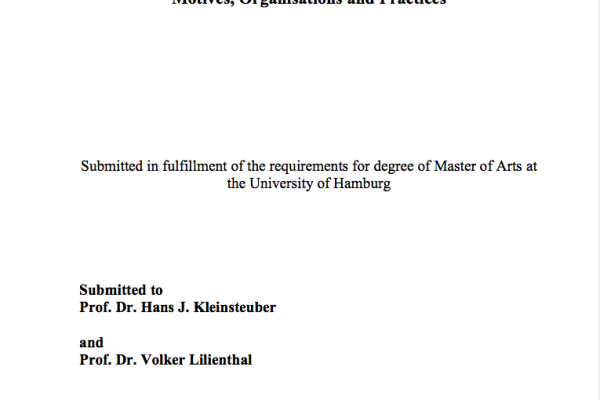“The project has been delayed, because of difficulties in finding the right wording on the projects rules, but let me underline strongly that the pilot project is still on the table for 2011/12," says Morten Løkkegaard, a Danish liberal member of the European Parliament. Løkkegaard has been coordinating the effort to support investigative journalism in Europe through research grants.
"The Commission needs more time to find the right framework, where the confidentiality of the journalist's research plans can be upheld without interference from the Commission. This also goes for the assistance body's independence in choosing the proposals. I look forward to a constructive dialogue with the Commission, who have given the right signals and shown true interest in making this happen," he says.
This year’s research grants now have been abandoned and the € 1,5 million allocated for 2010 and 2011 thus are lost to journalists. However the fight for public service style support will go on, as the European Parliament has allocated further € 1,5 million for 2011/2012 in the recently passed budget. Apart from Morten Løkkegaard also Belgian conservative MEP Ivo Belet, German green MEP Helga Trüpel and in his own group Danish Anne E. Jensen have been working on the efforts to establish the option for journalists to work across borders.
There were two conflicting arguments in the preparations for the call, which could not be aligned to save the first € 1,5 million to European and cross-border journalism. The European Commission argued that it needed to be the body making the final decision on which journalist-teams could get the research grants, and that it needed information about editorial content. Otherwise the Commission could not fulfill the requirements of the EU auditing rules. On the other side the MEPs and journalists in the ad-hoc expert group argued, that editorial confidentiality was absolutely crucial, and that models for independent funding for journalism already exist, for example in the various frameworks of public service broadcasters on national level.
In its letter to the bidders the Commission wrote that “on the basis of the continuous analysis of the conditions in which the pilot project would be organised (…) the Commission has come to the conclusion that the conditions for the success of the project are not fulfilled.” Thus the bid was cancelled weeks after the deadline and after offers for the tender had been prepared by several bidders.
The MEPs will continue the work in 2011. "The struggle to secure public service funds for cross border investigative journalism goes on. The pilot project is a unique opportunity to contribute to the creation of a European public sphere,” says Løkkegaard.
Chronology
2009: The European Parliament allocates € 1,5 million to be distributed to small teams of journalists, who want to work on European or cross-border stories. The initial driving forces were Danish MEP Anne E. Jensen and German MEP Helga Trüpel in their respective committees, also Belgian MEP Ivo Belet supported the idea early on. Danish MEP Morten Løkkegaard joined the team and took care of coordination after he was elected to Parliament in 2009.
2010: The European Commission is set to develop a model to administrate the pilot project. It calls an expert group consisting mainly of journalists. The group has its first meeting in early July 2010 and suggests to install an assistance body to distribute the money to journalists thus safeguarding an arms-length principle according to MEP Morten Løkkegaard, who upon his election to the European Parliament has taken the lead to coordinate the pilot project with th Commission.
On October 15th 2010 the Commission publishes its call for proposals to interested journalists and at the same time a call for tender to organisations, who wish to act as the assistance body. Journalists can apply until January 15th 2011, the bidders for the Assistance body until November 19th 2010.
The tender documents show, that the Commission reserves the right to access editorial content of the applying journalists, and the practicalities are thus met with criticism, amongst others by the expert group. One expert group member is interviewed about the situation and publicly utters his concern about the editorial independence in Swedish journalist magazine Scoop. MEP Løkkegaard tries to save the project with the Commission. However the efforts fail and on December 13th the Commission tells the bidders for the tender and the journalists, that the pilot project is abandoned.
2011: Morten Løkkegaard and Ivo Belet plan to continue the talk with the Commission in order to make the pilot project come true.

